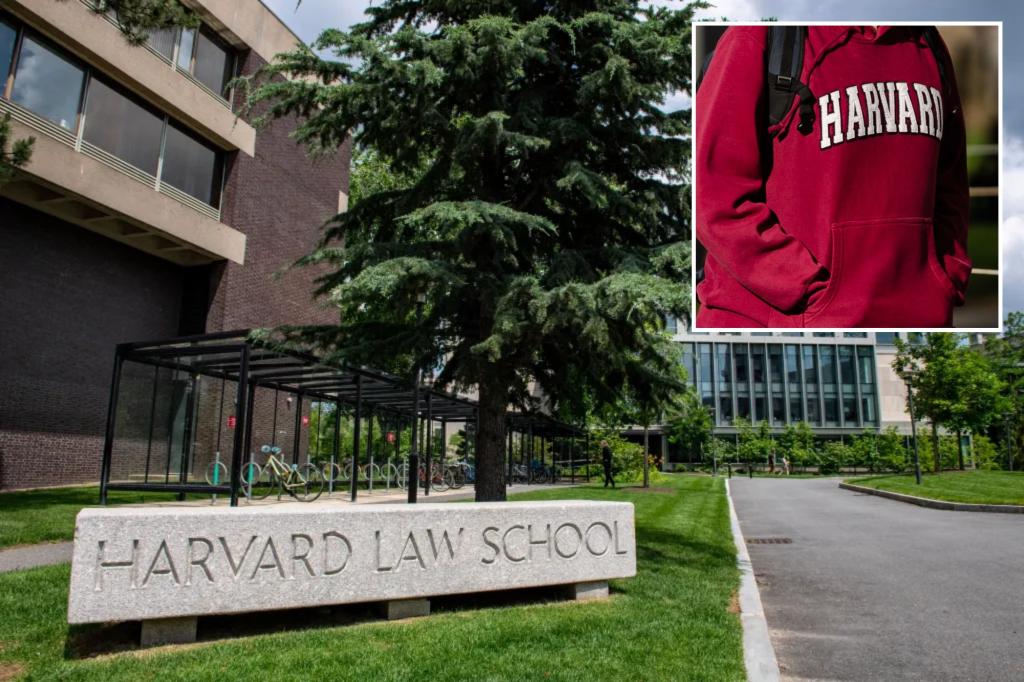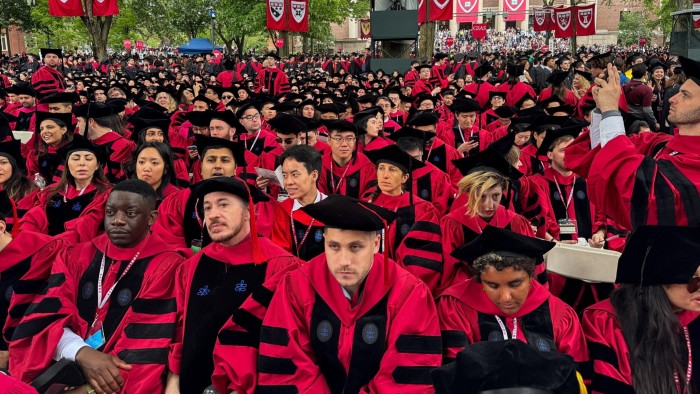Allegations of Retaliation: Harvard Law Review’s Controversial Response to Race-Based Hiring Exposé
A recent investigation has raised serious questions about the integrity of the Harvard Law Review (HLR) and its commitment to academic freedom. Allegations have surfaced that HLR may have taken retaliatory actions against a student who exposed claims of race-based hiring practices within the prestigious institution. This revelation not only puts the spotlight on HLR’s internal processes but also ignites a broader dialogue about accountability and ethical standards in elite academic circles.
Background of the Allegations
The controversy began when a Harvard Law student, who wishes to remain anonymous, published an article detailing claims that HLR engaged in discriminatory hiring practices based on race. The report alleged that certain candidates were favored or excluded from editorial positions at the review due to their racial backgrounds, raising alarms about fairness and equity in an institution known for its rigorous academic standards.
The student’s exposé quickly gained traction, prompting discussions about the need for transparency and reform in hiring practices not just at HLR, but across elite educational institutions nationwide. Critics argue that such practices undermine the principles of meritocracy and diversity that many universities claim to uphold.
Retaliation Claims
Following the publication of the article, the student reported experiencing a series of retaliatory actions from HLR. Sources indicate that the student faced increased scrutiny from peers and faculty, as well as a noticeable shift in the treatment received from HLR leadership. The student alleges that these actions were direct consequences of their decision to expose the troubling hiring practices.
- Peer Relations: The student reported feeling isolated within the HLR community, with some colleagues expressing disapproval over the article.
- Faculty Response: Faculty members were said to have raised concerns about the student’s motivations and integrity, further compounding the feeling of alienation.
- Leadership Actions: The student claims that leadership at HLR became less supportive following the publication, including limiting access to resources previously available to them.
Response from Harvard Law Review
In response to the allegations, HLR released a statement asserting its commitment to diversity and inclusion. The statement, however, was met with skepticism by many who believe that the actions taken against the student reflect a culture of retaliation that stifles free expression and dissenting viewpoints.
“We value academic freedom and strive to create an environment where all voices can be heard,” the statement read. “Any claims of retaliation are taken seriously and will be investigated thoroughly.” Yet, critics argue that the lack of transparency in the investigation process and the absence of concrete actions to address the student’s concerns signal a failure to uphold these very values.
Broader Implications
The allegations against HLR are not isolated; they resonate within a larger narrative about race, equity, and accountability in elite educational institutions. The incident raises essential questions about how universities handle allegations of discrimination and whether they are truly committed to fostering a diverse and inclusive environment.
- Academic Freedom: Critics emphasize that the ability to voice concerns about institutional practices is a fundamental right within academia. Retaliation against students or faculty who raise such concerns threatens this freedom.
- Accountability: The manner in which HLR addresses these allegations may set a precedent for other institutions. Will they take meaningful steps to investigate and rectify claims of misconduct?
- Trust in Institutions: Incidents like this can erode trust in elite institutions. Students and faculty may feel discouraged from reporting unethical practices if they fear retaliation.
Community Reactions
The response from the Harvard community has been mixed. While some students and faculty members rallied around the anonymous student, advocating for greater transparency and accountability, others expressed concern over the potential damage to HLR’s reputation.
“We need to support those who are brave enough to speak out against injustices,” said a fellow student involved in discussions about the issue. “This isn’t just about one student; it’s about making sure that everyone feels safe to express their concerns.”
Calls for Reform
In light of these revelations, there are increasing calls for reform within HLR and other elite academic institutions. Advocates for change are urging HLR to establish clearer guidelines for hiring practices, as well as stronger protections for individuals who report misconduct.
“If we want to create a truly inclusive environment, we need to ensure that our policies reflect that commitment,” stated a professor at Harvard Law School. “This situation highlights the urgent need for dialogue and action.”
Conclusion
The allegations of retaliation against the Harvard Law Review raise critical issues about race, accountability, and freedom of expression within academia. As the situation develops, it remains to be seen how HLR will respond and whether meaningful changes will be enacted to prevent future occurrences of discrimination and retaliation.
In an era where diversity and inclusion are more important than ever, the eyes of the academic community—and beyond—remain firmly fixed on HLR. The outcome of this controversy may not only shape the future of the institution but also influence the broader conversation surrounding equity in education.
See more TED Talks World


